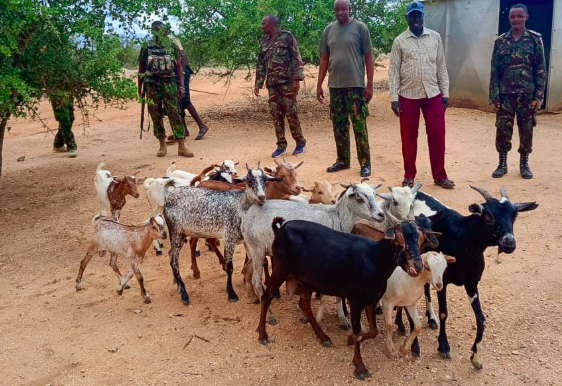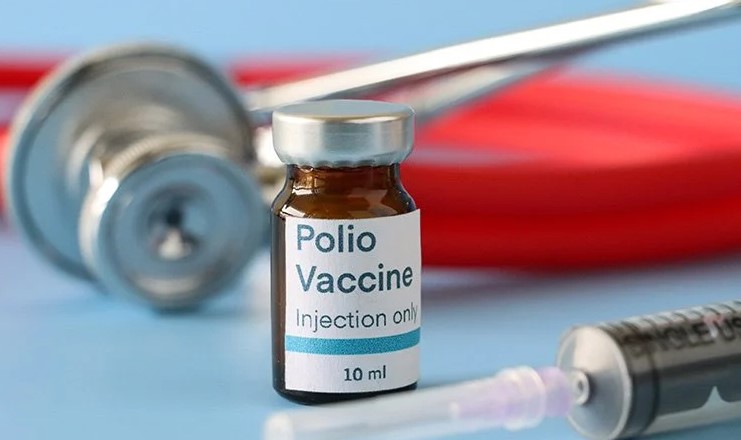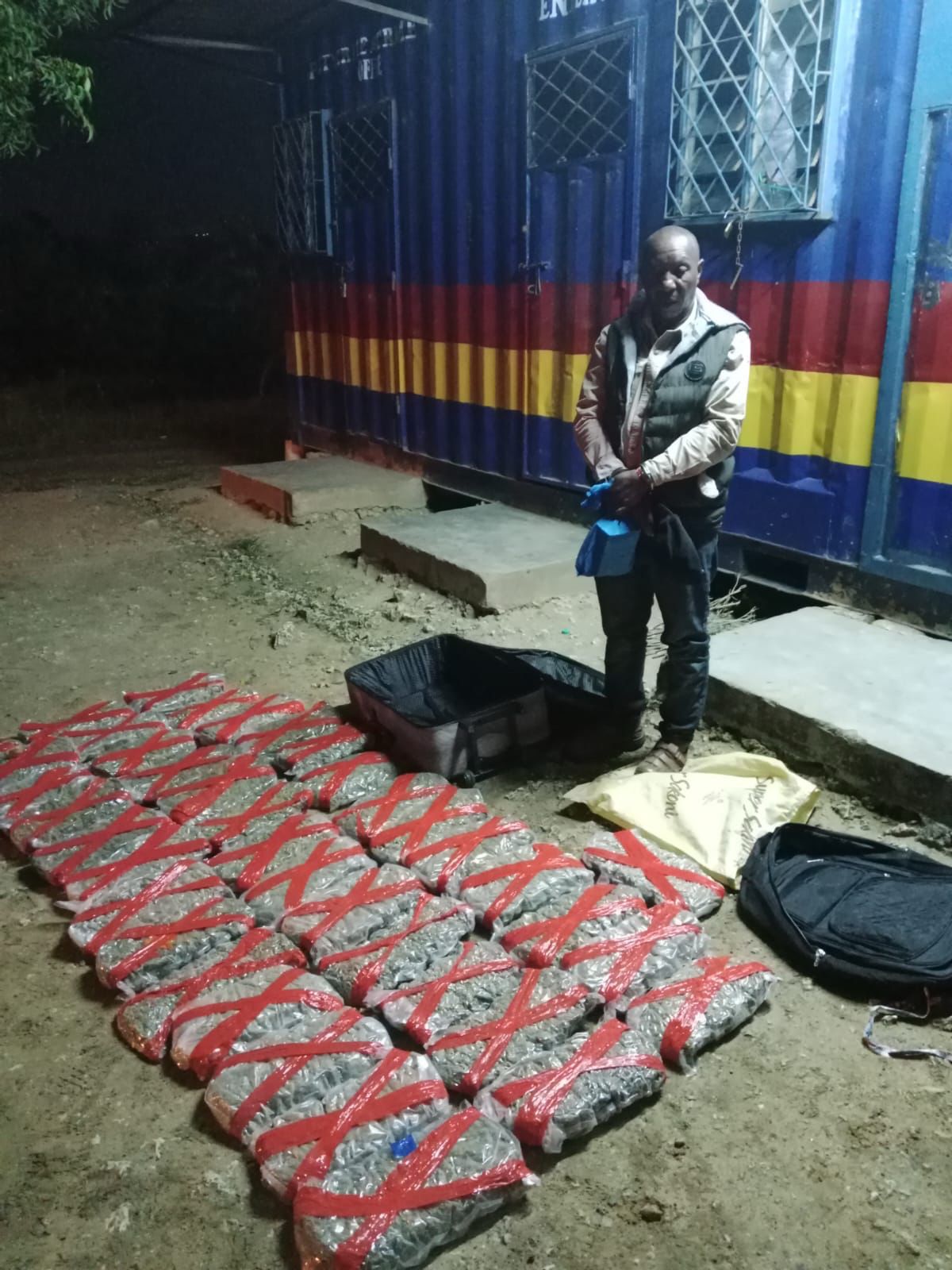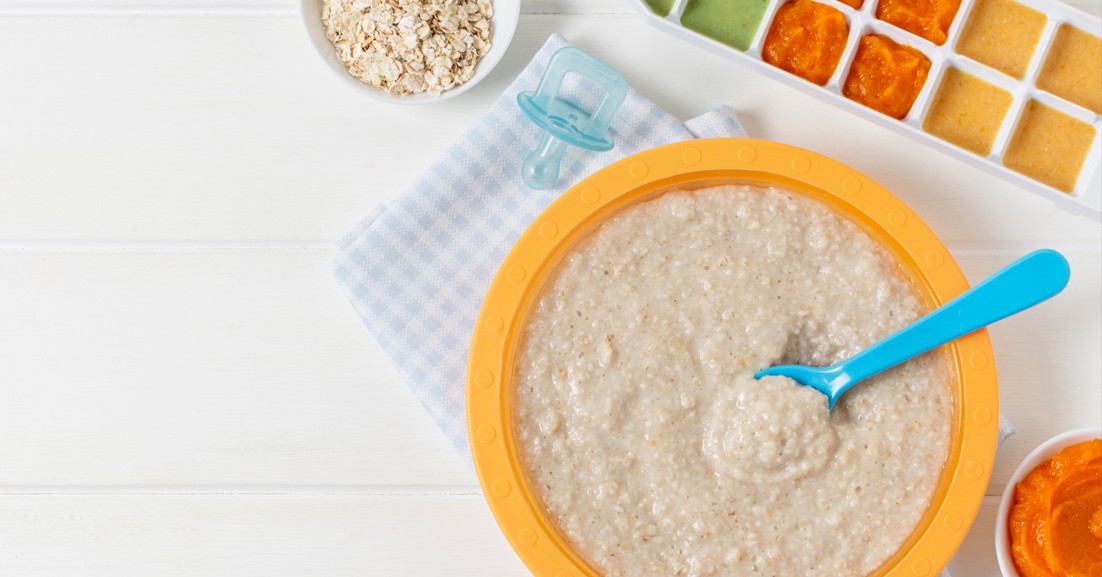Kilifi mothers combat malnutrition in infants through exclusive breastfeeding
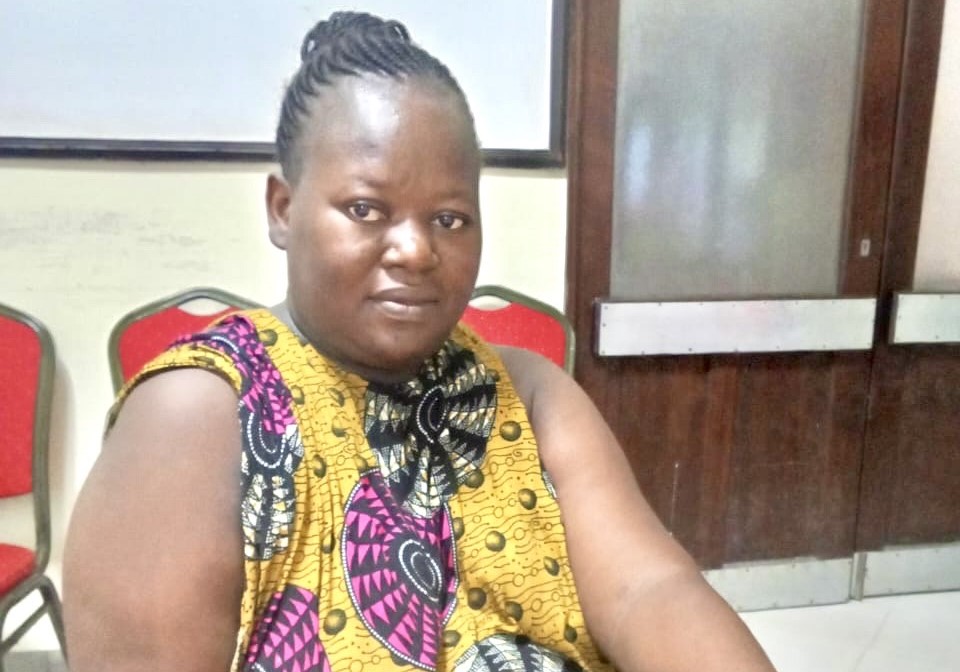
Exclusive breastfeeding contributes to higher IQ levels, mitigates allergy risks, and reduces the likelihood of developing ovarian and breast cancer.
On a Tuesday morning at the maternity unit of Kilifi County Referral Hospital, mothers, some cradling their infants and others with toddlers at their feet, were seated in a semicircle, their attention on the nurse standing before them.
The room, filled with the soft murmur of mothers exchanging whispers and the occasional coo of a baby, exuded a warm, nurturing atmosphere.
More To Read
- Over 40,000 children treated for severe malnutrition in North Darfur - UNICEF
- 700,000 refugees in Kenya face severe hunger crisis after aid cuts
- Turkana communities empowered to embrace home-grown foods to tackle malnutrition
- Somalia’s youngest at risk as nutrition clinics shut
- Silent agony: Lack of awareness and stigma delay inflammatory bowel disease care in Kenya
- Aid cuts threaten nutrition support for 55,000 children in Somalia
The walls were adorned with colourful posters about maternal health and nutrition. Here they come daily for their postnatal clinic.
Nurse Lennox Taura, who works at the hospital’s maternity wing stood at the front of the room with a chart in one hand, using the other to gesture as he spoke. His clear and confident voice filled the room as he explained the benefits of exclusive breastfeeding.
The mothers listened intently, nodding in understanding and occasionally jotting down notes. They were eager to absorb every piece of advice that could help them nourish and care for their children.
They came from various parts of Kilifi County and, one by one, they stood and shared about their breastfeeding journeys.
Lilian Kuvuna, a mother of two recounted her experience with exclusive breastfeeding.
“On my part, I diligently adhered to exclusive breastfeeding for six months, believing it was crucial for my baby's health and development. Ensuring my baby received sufficient milk was a top priority, so I focused on maintaining a healthy diet that would support milk production. I made it a habit to eat well and in sufficient quantities throughout the day,” said Kuvuna.
She revealed that to sustain a plentiful milk supply, she developed a daily routine that revolved around nutrition. Each morning, she would start with a nourishing bowl of porridge, which she said provided her with the energy she needed for the day.
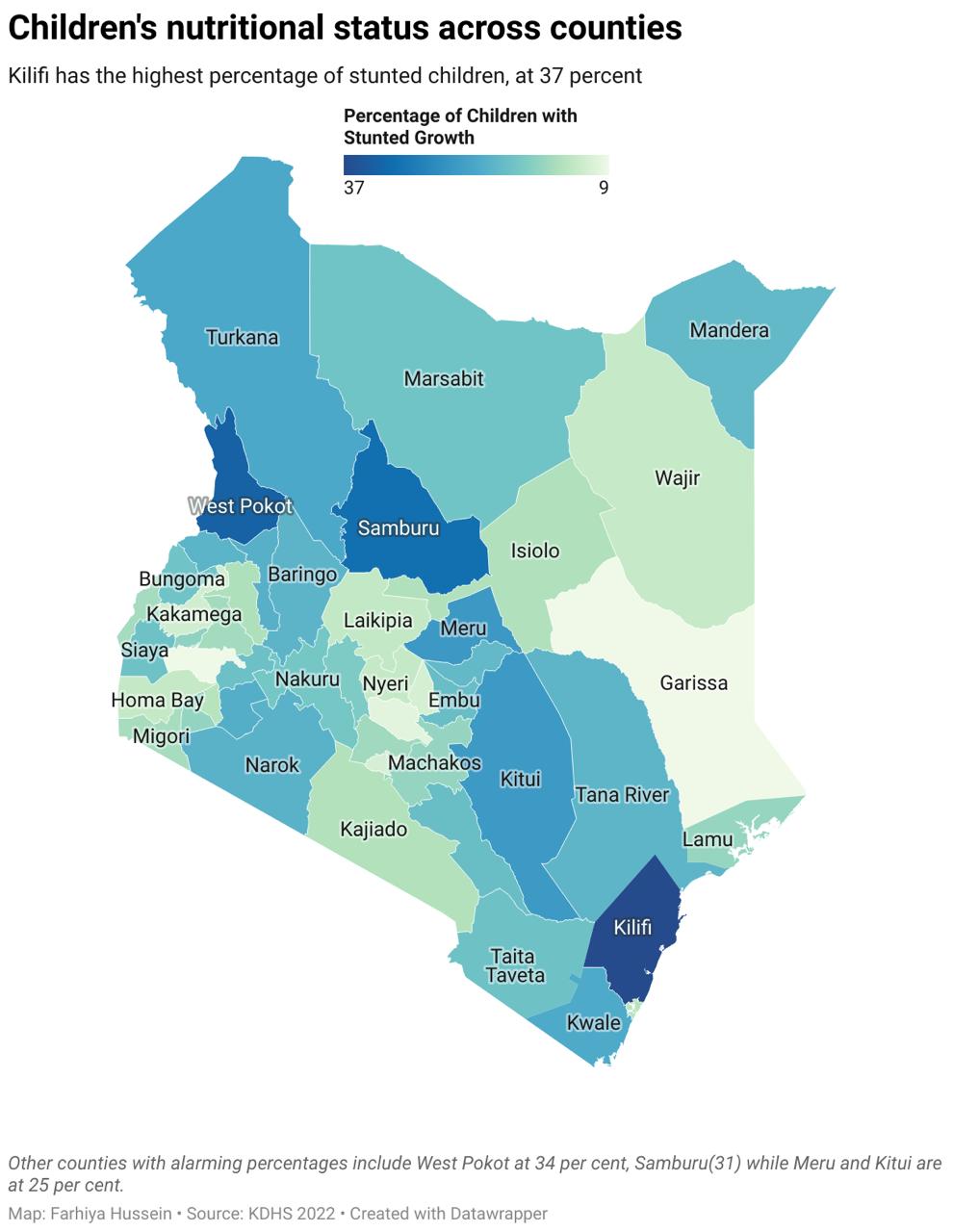
“At 10 o'clock, I made sure to take a break and have a cup of tea, which also helped me stay hydrated. For lunch, I thoughtfully selected a balanced diet. This typically included ugali, a staple dish made from maize flour, paired with either potatoes or a serving of meat. I also made sure to incorporate plenty of fruits and vegetables into my meals, with mchicha (amaranth) being a regular feature. These dietary choices not only satisfied my own nutritional needs but also contributed to the quality and quantity of milk I was able to produce for my baby,” she said.
Self-care
Kuvuna said maintaining a steady milk supply requires dedication and effort. Beyond nutrition, she also prioritised rest, knowing that self-care was essential for both her well-being and the ability to breastfeed effectively.
She found support from family and friends who encouraged and reassured her along the way, making the experience of exclusive breastfeeding a deeply fulfilling one.
“Yes, I am a working mother, I am a teacher by profession. I was fortunate because it was during the COVID-19 pandemic, so I had the advantage of staying at home with my child, allowing for exclusive breastfeeding for six months. Now, my child is doing well and does not get sick easily. I would advise other mothers to exclusively breastfeed their children for six months because, from my experience, I have seen the benefits,” said Kuvuna.
Next to her was Lydia Samini, whose expression shifted between concern and hope as she listened, reflecting on her challenges with breastfeeding her four children.
"I did not breastfeed exclusively for six months. I struggled in between, I only breastfed one child exclusively for six months. I have four children. Three of them did not experience exclusive breastfeeding. They often fell ill, requiring frequent hospital visits. It never occurred to me that skipping exclusive breastfeeding could lead to health problems for them. The one child who did receive exclusive breastfeeding at least doesn't visit hospitals as often," Samini explained.
As she spoke, some mothers were nodding their heads, seemingly in agreement with the issues she was raising.
Her eldest child, who was breastfed for two years, is now in the fourth grade and doing well.
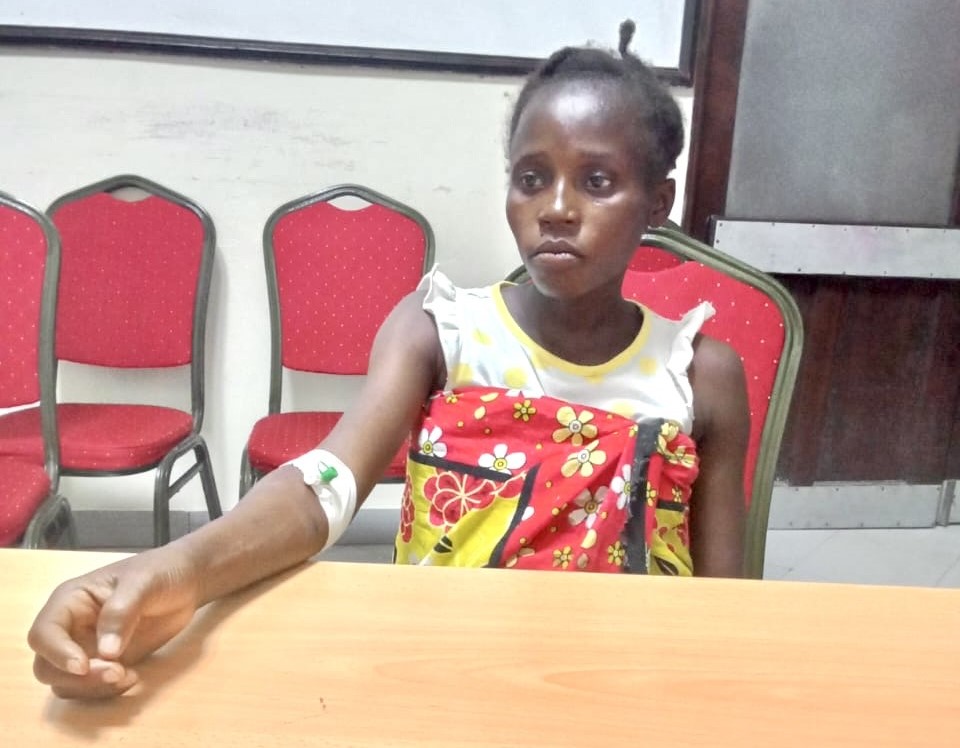 Lydia Samini during an interview with The Eastleigh Voice at the Kilifi County Referral Hospital at maternity wing. (Photo: Farhiya Hussein)
Lydia Samini during an interview with The Eastleigh Voice at the Kilifi County Referral Hospital at maternity wing. (Photo: Farhiya Hussein)
Reflecting on her challenges, Samini attributed the lack of exclusive breastfeeding to her work at a salt refinery where she struggled to get sufficient food and time to express milk.
"I worked at a salt company which needed my energy and time. Due to my job, I couldn't produce enough milk. My three children who didn't get exclusive breastfeeding still struggle health-wise and are not as attentive in school," she said.
Taura noted that Samini's story reflected the critical link between exclusive breastfeeding and children's health outcomes.
Despite her circumstances, Samini now advocates passionately for exclusive breastfeeding based on her first-hand experience.
"As a mother who has seen both sides, I urge fellow mothers to prioritise exclusive breastfeeding. It makes a real difference in the health and development of our children. I have witnessed it myself, and I want others to benefit from this knowledge," she said.
Like Samini, many mothers face the challenge of balancing work, nutrition, and childcare.
Benefits
According to, Taura exclusive breastfeeding for infants comes with various benefits.
“Exclusive breastfeeding is crucial as breast milk contains antibodies that enhance the child's immunity, serves as a complete balanced diet readily available at all times, and contributes to higher IQ levels. It also mitigates allergy risks, delays menstruation in mothers, promotes uterus involution, and reduces the likelihood of ovarian and breast cancer,” Taura said.
 Nurse Lennox Taura who works at the Kilifi County Referral Hospital during an interview with The Eastleigh Voice at the Kilifi County Referral Hospital maternity wing. (Photo: Farhiya Hussein)
Nurse Lennox Taura who works at the Kilifi County Referral Hospital during an interview with The Eastleigh Voice at the Kilifi County Referral Hospital maternity wing. (Photo: Farhiya Hussein)
He said breastfeeding mothers who are working face various challenges including insufficient milk production, breastfeeding pain, sore nipples, milk leakage, breast engorgement, and potential difficulties in bonding.
He advocates for alternatives to exclusive breastfeeding in specific situations.
“For mothers who are unable to breastfeed directly, alternatives such as cup-feeding with cow milk or expressed breast milk either from the mother or a donor are recommended. However, infant formulas are discouraged due to their potential disadvantages,” he said.
He said in Kilifi County, mothers often carry infants with them wherever they go, allowing for effective exclusive breastfeeding in the first few months.
“Due to resource constraints, alternative foods are rarely introduced during this period. However, after weaning, infants receive substantial quantities of adult food, which prematurely accelerates their transition away from breastmilk,” he said.
According to the 2022 Kenya Demographic Health Survey, Kilifi County leads the Coast region with an impressive 89.2 per cent rate of newborns exclusively breastfed in the first two days after birth, surpassing Kwale and Lamu counties. However, this achievement is overshadowed by a concerning 37 per cent prevalence of stunting, indicating an urgent need for intervention.
The survey also notes that Kilifi County has the highest stunting prevalence at 37 per cent, followed by West Pokot at 34 per cent and Samburu at 31 per cent.
This story was made possible with the support of the UZIMA-DS project, funded by the National Institutes of Health (NIH).
Top Stories Today
Reader Comments
Trending








